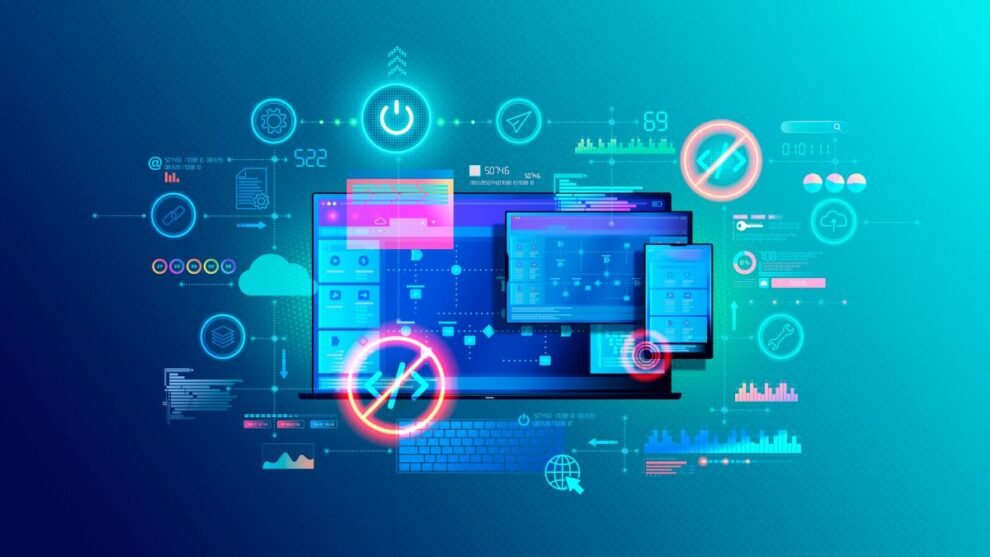AI coding assistants have become increasingly popular, promising to boost developer productivity and simplify complex coding tasks. These tools, powered by machine learning, can generate code snippets, suggest completions, and even debug programs. While they offer clear advantages, a closer examination reveals that they are not a panacea for all coding challenges. Developers are finding that these assistants are helpful but require careful oversight and cannot fully replace human expertise.
One primary limitation is the potential for AI to generate incorrect or inefficient code. Because these assistants learn from vast datasets of code, they can sometimes perpetuate existing errors or biases. A developer at a large software company, who prefers to remain anonymous, shared an experience where an AI assistant suggested a code segment that seemed correct at first glance. However, upon closer inspection, the code contained a subtle bug that could have led to significant problems later. The developer emphasized the importance of human review, even when using AI tools.
Another challenge is the issue of code ownership and intellectual property. The code generated by an AI assistant is based on the data it was trained on. This raises questions about whether the generated code is truly original. Concerns about copyright infringement and plagiarism have surfaced, especially when the training data includes code from open-source repositories or proprietary projects. Legal experts are still grappling with these issues, and clear guidelines are yet to emerge. This uncertainty can make developers hesitant to fully rely on AI-generated code, especially in sensitive projects.
Furthermore, AI coding assistants are not always adept at understanding the nuances of complex software projects. They can struggle with tasks that require a deep understanding of the project’s architecture, specific requirements, and business logic. A software engineer working on a financial application explained that while the AI assistant was helpful for generating boilerplate code, it struggled with the more intricate parts of the project, such as implementing complex financial algorithms. In these cases, the engineer found it more efficient to write the code manually.
Despite these limitations, AI coding assistants offer several benefits. They can significantly speed up the development process by automating repetitive tasks, such as writing unit tests or generating documentation. A study conducted by a leading tech company found that developers using AI assistants completed certain coding tasks up to 30% faster. This speed boost can be particularly valuable in fast-paced development environments.
These tools can also help developers learn new programming languages and frameworks. By providing code examples and suggestions, AI assistants can lower the barrier to entry for novice programmers. A coding bootcamp instructor mentioned that students using AI assistants were able to grasp fundamental programming concepts more quickly. The assistants provided immediate feedback and helped students avoid common errors, which accelerated their learning process.
Moreover, AI coding assistants can improve code quality by identifying potential bugs and suggesting improvements. Some tools have built-in static analysis capabilities that can detect coding errors and security vulnerabilities. This feature can be especially helpful for catching subtle issues that might be missed during manual code reviews. By identifying these issues early, developers can prevent costly problems down the line.
The future of AI coding assistants likely involves closer integration with development environments and more sophisticated AI models. Researchers are working on developing AI assistants that can better understand the context of software projects and generate more accurate and efficient code. Some companies are exploring the use of AI to automate even more complex tasks, such as designing software architectures and generating entire applications.
While the hype surrounding AI coding assistants is justified, it’s crucial to recognize their current limitations. They are valuable tools that can enhance developer productivity and improve code quality, but they are not a replacement for human programmers. Developers need to understand the strengths and weaknesses of these tools and use them judiciously. Human oversight remains essential for ensuring the correctness, security, and originality of the code. As AI technology continues to advance, coding assistants will likely become even more powerful and integrated into the software development lifecycle. However, the human element, with its creativity, problem-solving skills, and deep understanding of software systems, will remain a critical part of the process. The most effective approach involves combining the power of AI with the expertise of human developers.










Add Comment